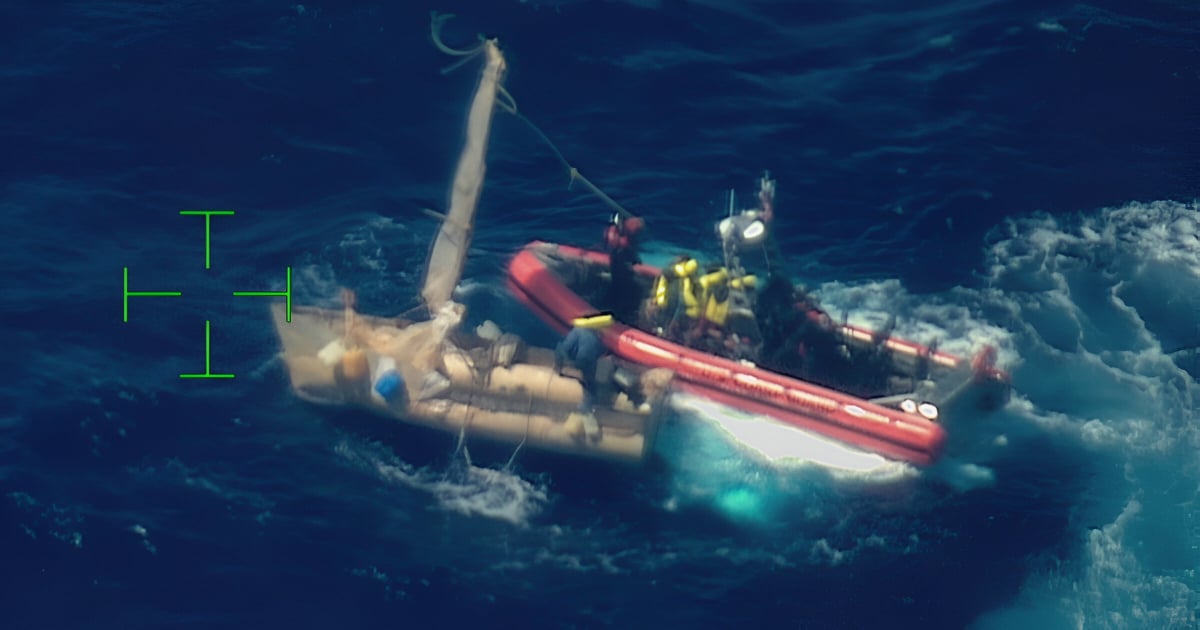
The U.S. government reiterated its firm stance on immigration laws on Thursday, warning that there will be no immediate changes following the elections on November 5.
In a message from the Washington Embassy in Havana posted on X, directed at individuals attempting to enter the country illegally, authorities emphasized that those who cross illegally between ports of entry will be quickly expelled.
"Update on immigration laws in the U.S. Immigration laws remain strict. There will be no immediate changes after the elections on November 5. Remember: individuals who enter the U.S. illegally between ports of entry will be swiftly expelled. It is important to stay informed and prepared," the statement expresses.
This Tuesday, a group of 24 Cuban migrants, including one woman, was deported from the United States on a flight that arrived at José Martí International Airport in Havana, according to the Ministry of the Interior of Cuba (MININT).
The day before, the Coast Guard repatriated four other migrants at the port of Orozco in Bahía Honda, Artemisa.
With these operations, a total of 1,255 Cubans have been returned to the island so far in 2024, a figure that reflects the tightening of immigration policies and the joint efforts between the United States and countries in the region to manage the migration crisis.
The tightening of immigration policies could escalate under the upcoming administration of Donald Trump.
Tom Homan, appointed by Trump to oversee border security in his new administration, stated that he plans to carry out the "largest deportation operation in U.S. history."
During a visit to Eagle Pass, Texas, Homan criticized Joe Biden's immigration policies, calling them responsible for a "humanitarian crisis" at the southern border.
"This is a matter of national security, and we are not going to back down," Homan stated, warning that there will be a radical change in immigration measures following Trump's inauguration on January 20.
Despite the rhetoric surrounding mass deportations, immigration law experts suggest that Cubans may not be the primary group affected due to the support provided by the Cuban Adjustment Act. This legal framework allows citizens from the island to regularize their status after a year of residence in the country, giving them an advantage over other nationalities.
Frequently Asked Questions about U.S. Immigration Laws and Their Impact on Cuban Migrants
What has the United States communicated about its recent immigration laws?
The U.S. government has reiterated its firm stance, stating that immigration laws remain strict and there will be no immediate changes following the elections on November 5. They have warned that individuals who enter the country illegally will be swiftly expelled.
What is the effect of these policies on Cuban migrants?
Current immigration policies have led to the deportation of a significant number of Cubans. So far in 2024, 1,255 Cubans have been returned to the island, reflecting the tightening of immigration measures.
What changes are expected with a possible Trump administration?
Tom Homan, appointed to oversee border security under a potential Trump administration, has stated that he intends to carry out the "largest deportation operation" in U.S. history, which could further escalate the tightening of immigration policies.
How could Cubans be affected by changes in immigration policies?
Despite strict policies, Cubans may not be the main group affected due to the support of the Cuban Adjustment Act, which allows them to regularize their status after a year of residency in the U.S., giving them an advantage over other nationalities.
Filed under: